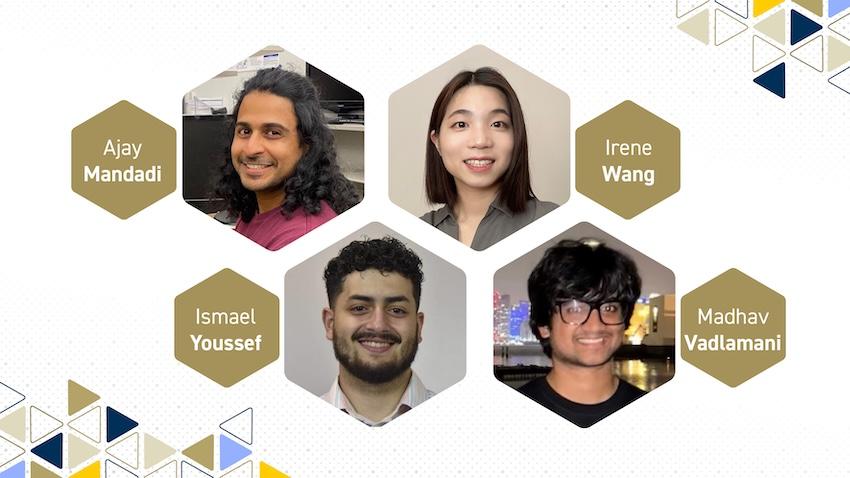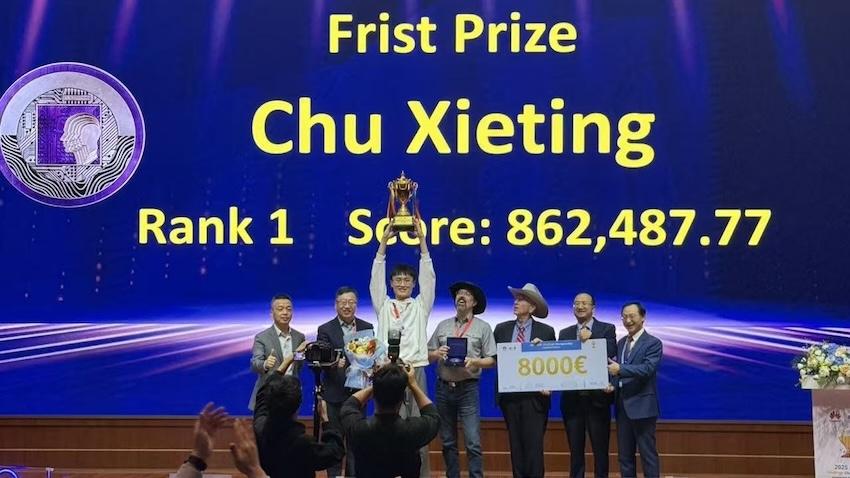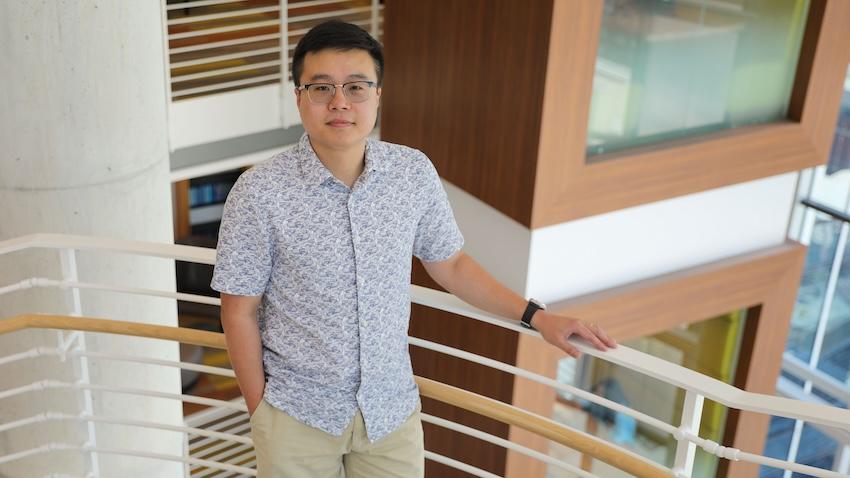
CRNCH Fellowship Awards Computing Innovation
The Center for Research into Novel Compute Hierarchies (CRNCH) has selected four Georgia Tech students for the CRNCH Fellowship Program.
Ajay Mandadi, Madhav Vadlamani, Irene Wang, and Ismael Youssef were selected for their innovative research proposals on novel computing paradigms and hierarchies. At the end of the fellowship, students will present their research at next year’s CRNCH Summit.
“Through the CRNCH Fellowship, we would like to encourage the next generation of researchers to think beyond traditional boundaries — integrating software and hardware perspectives and exploring co-design opportunities that will define the future of computing,” said Hyesoon Kim, CRNCH co-director and School of Computer Science (SCS) professor.
Mandadi is a Ph.D. student in electrical and computer engineering advised by SCS Professor Tom Conte. As a member of the TINKER lab at Georgia Tech, he designs systems that use novel computing paradigms.
Mandadi’s research centers on the development of energy-efficient architectures for high-performance computing applications. His fellowship proposal involves an architecture that establishes a new computing framework, connecting analog hardware with high-precision applications to enable scalable and energy-efficient computation.
Vadlamani is a second-year Ph.D. student in electrical and computer engineering. He researches analog computing and compute-in-memory architecture design. His work has applications in artificial intelligence (AI) and the efficient solution of NP-hard optimization problems. Vadlamani is advised by School of Electrical and Computer Engineering (ECE) Professor Shimeng Yu.
For his fellowship research, Vadlamani is developing a compute-in-memory (CiM) architecture that directly computes the least-squares solution in a single step, making it more efficient than other approaches.
Vadlamani said he is looking forward to learning from others at CRNCH and presenting his research.
“I also see the CRNCH Summit as an amazing venue to present my work and connect with researchers exploring cutting-edge directions in novel computing,” he said.
Wang is a third-year computer science Ph.D. student studying under ECE and SCS Assistant Professor Divya Mahajan. In addition to this fellowship, Wang was recently recognized as an MLCommons Rising Star. Wang’s research takes a full-stack approach to enable scalable, robust, and energy-efficient training of large language models (LLMs).
Wang’s research proposal addresses the challenge of training large AI models, by using a network-aware device placement framework to optimize the process. Her work aims to make training large AI models more scalable and efficient.
Youssef is a second-year electrical and computer engineering Ph.D. student. He is a member of the Sharc Lab and advised by ECE Assistant Professor Callie Hao. Youssef explores 3D field-programmable gate arrays (FPGAs). His CRNCH fellowship proposal builds on an open-source framework that he had previously developed. The LaZagna framework helps researchers explore 3D FPGA architectures and compare them with conventional 2D designs.
Youssef said he sees the fellowship as a way to strengthen his research and build collaborations.
“I’m especially excited to learn from the diverse perspectives within this community,” he said.


